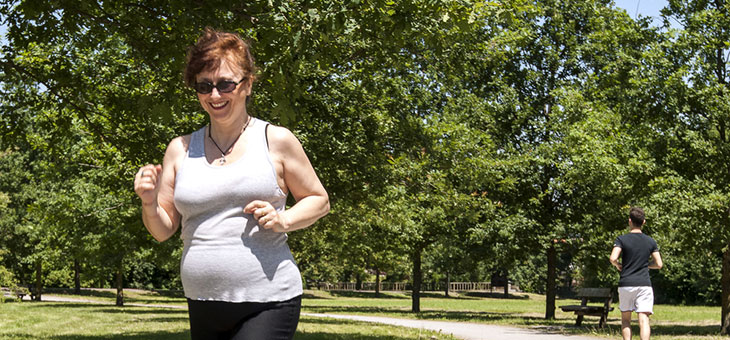Has your partner ever said to you: “Lose weight. At your age, it’s not good for your old heart to carry extra kilos.”
And have you gone away and thought to yourself: “If I’m skinny, I’ll become frail, and frail people become susceptible to illnesses.”
So who’s right?
Well, both trains of thought are correct. Carrying extra kilos is not good, but neither is losing so much weight that you become gaunt.
Research shows that our body fat increases steadily after age 30, and for women this may increase by as much as 30 per cent by the time menopause starts.
The fat shifts from subcutaneous – under the skin – to visceral, which is around the internal organs. Visceral fat is associated with increased risk of heart disease, stroke, diabetes and cancer.
Being underweight, however, may mean you don’t have a healthy, balanced diet, which can lead to a lack of nutrients that your body needs to function properly.
If you’ve successfully reached middle-age or later life, you’ve probably got a fair idea what your correct weight should be.
By ‘correct’ we mean the weight at which you can comfortably do the things you want to do without blowing a gasket. Things such as pulling on your socks, walking up stairs, getting in and out of the car or running a few metres to make the train.
The thing about putting on weight as you get older is that it becomes more difficult to lose it. You are probably less active, play less competitive sport, your job may be more sedentary, and perhaps you’re less motivated to look good.
Perhaps your knees ache, or your hip is troubling you. And it’s a fact that your metabolism has slowed down.
All this makes you less active and, because your hormones are also changing, you have to work harder to maintain muscle mass. Losing muscle mass causes energy needs to drop because fat tissue requires less energy – or calories – to maintain compared to muscle.
How full is your too-hard basket now? Well, let’s look at emptying it, and we’ll start with your metabolism excuse.
Your metabolism actually started slowing when you were in your late 20s, so it’s unfair to blame this for weight gains later in life. And it won’t actually slow too much, anyway. So this leaves inactivity as the main cause.
Without trying too hard, you should be able to come up with many things to raise your activity output at no expense and without massive changes to your lifestyle.
A daily session with light weights, a few push-ups, maybe some stomach crunches and plenty of walking can help prevent muscle loss and increase activity levels.
Consider taking the stairs instead of the lift. Walk to the shops instead of driving. Don’t get the newspaper delivered, walk to the newsagent and buy it. Sack the gardener and maintain your own lawn. Buy a dog. They need walking.
Walk to the local oval and watch the Saturday game of cricket, and instead of leaning on the boundary fence, walk a few laps.
Wash your car by hand. Count to 10 every time you reach for the car keys and ask yourself: “Could I walk?”
As for eating less, try this – only serve yourself half what you might normally put on your plate.
Chances are you’ll be too exhausted from all the walking you’ve done to get up from the table, walk to the kitchen and help yourself to more.
Have you added some extra kilos as you’ve aged? Have you tried to do something about it?
Related articles:
Terrified of going to the toilet?
Don’t ignore this health issue
Should you worry about dizziness?
Disclaimer: This article contains general information about health issues and is not advice. For health advice, consult your medical practitioner.

